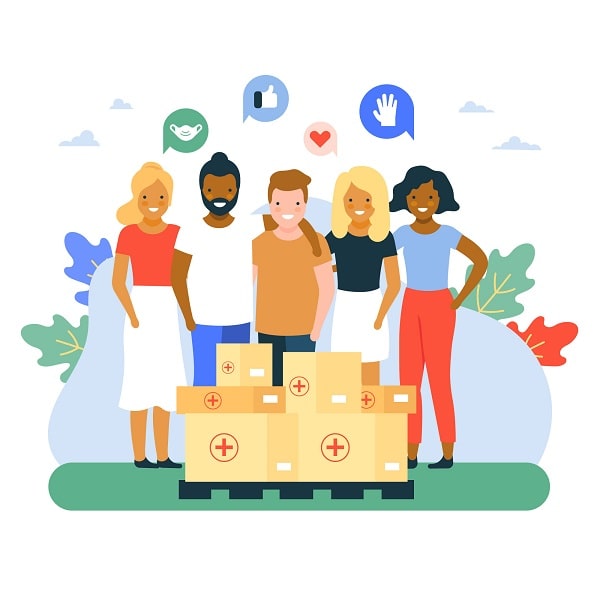
The central role of women in humanitarian efforts cannot be overstated, as they navigate a complex landscape from community empowerment to conflict prevention. Their multifaceted contributions are integral to creating inclusive, sustainable solutions that not only promote peace but also address gender-specific needs in the face of crises. The unique perspectives and cross-cultural sensitivity of women in these roles contribute significantly to building trust and understanding within communities, fostering resilience during times of crisis. As humanitarian actors, women engage directly with conflict-affected communities, utilizing gender-sensitive approaches to understand and respond to the unique challenges faced by women, children, and marginalized populations. Beyond merely addressing immediate needs, they play a vital role in conflict prevention by identifying and mitigating the root causes that contribute to instability. Their involvement in dialogue and mediation processes contributes to inclusive decision-making, ensuring that diverse voices are heard and considered.
Women in humanitarian roles lead initiatives in critical areas such as health, education, and economic empowerment, tailoring interventions to address the specific needs of women and children. Their efforts extend beyond providing immediate relief to establishing frameworks for long-term community well-being. Through these initiatives, women humanitarian actors become catalysts for positive change, fostering sustainable development that enhances the overall stability and resilience of communities affected by conflict and crisis.
Moreover, female humanitarian actors serve as advocates for policies that promote gender equality, protect vulnerable populations, and address the root causes of conflict. Their advocacy extends to challenging societal norms and systemic barriers that perpetuate gender-based discrimination and violence. By actively engaging with local communities, women humanitarian actors cultivate a deep understanding of cultural nuances, enabling them to implement more effective and context-specific interventions.
The exclusion of Afghan women from active participation in humanitarian activities due to the resurgence of the Taliban in August 2021 has had profound consequences. The impact reaches far beyond the immediate threats to peace and stability, permeating various dimensions of Afghan society. The strict enforcement of the Taliban has not only curtailed the economic and societal participation of women and girls but has also restricted their involvement in decision-making processes, program development, and implementation.
This exclusion has led to tangible impacts on essential services that were previously a lifeline for many women. Protection shelters, vital for survivors of gender-based violence, faced forced closures, looting, and harassment by the Taliban, leaving survivors without a safe haven. The shocking response to women reporting gender-based violence, with Taliban police detaining women in makeshift centers, highlights a breakdown in essential support systems for survivors. The criminalization of rape, coupled with the dismantling of protection services, exacerbates the vulnerability of survivors, pushing them into the shadows without recourse. The UNAMA’s Human Rights Section has documented a staggering 87 cases of violence, including killing, rape, suicide, forced marriages, assault, battery, and honor killings, since August 2021. Alarmingly, none of these cases have been processed through the formal justice system, emphasizing a critical gap in mechanisms to address gender-based violence.
The consequences of excluding Afghan women from humanitarian activities extend to economic and societal domains. Long-standing practices like bride exchanges between families remain widespread and decriminalized, contributing to a culture that perpetuates inequality and diminishes the agency of Afghan women. Furthermore, the suspension of women-led businesses due to Taliban edicts against female participation in the marketplace exacerbates economic challenges, pushing women further to the margins.
The crisis also extends to the legal realm, with women who previously served as judges, lawyers, and prosecutors fleeing or being replaced by former Taliban fighters and madrassah graduates who often lack legal training or expertise. This not only undermines the judicial system but also exacerbates the challenges faced by women seeking justice in the aftermath of gender-based violence.
The plight of LGBTQI+ individuals in Afghanistan has worsened since the Taliban takeover, facing increased threats, attacks, sexual assaults, and discrimination from various sources. The LGBTQI+ community lives in constant fear, at risk of arrest by Taliban police and militia, coupled with rampant discrimination, assault, and rape.
As Afghanistan grapples with these multifaceted challenges, the exclusion of Afghan women from humanitarian activities emerges as a critical impediment to the nation’s recovery. The recent surge in gender-based violence, coupled with the dismantling of essential services and the erosion of women’s participation in various aspects of life, demands urgent international attention.
Reinstating women in decision-making roles, recognizing their expertise, and involving them in the development and implementation of humanitarian programs is not just a matter of principle but a strategic necessity for fostering lasting peace in Afghanistan. The international response must prioritize the involvement of Afghan women to ensure that relief efforts are comprehensive, addressing the diverse and complex needs of the population. The expertise and perspectives of women are indispensable for creating a more inclusive, resilient, and equitable Afghanistan.
In conclusion, Afghanistan’s humanitarian crisis is not solely a consequence of political turmoil but a complex web of challenges that disproportionately affect women. The exclusion of women from vital roles exacerbates the multifaceted nature of the crisis, deepening the suffering of an already vulnerable population. The path to recovery requires a concerted effort to reinstate women in decision-making positions, acknowledging their expertise and perspectives as indispensable elements for creating a more inclusive, resilient, and equitable Afghanistan.
The Humanitarian Peace Foundation (HPF) is steadfastly committed to promoting peace and advocates for critical issues, including gender inclusivity in humanitarian efforts. It stands as a beacon for positive change, emphasizing the imperative of collective advocacy. We call on other individuals and organizations to join in our commitment, fostering a more compassionate and equitable world through collaborative efforts.
Resources:
- Human Rights Watch (HRW) Report on Afghanistan: https://www.hrw.org/world-report/2023/country-chapters/afghanistan
- Al Jazeera Article on the Taliban Takeover’s Impact on Afghan Women: https://www.aljazeera.com/news/2022/8/11/a-year-of-taliban-takeover-the-missing-women-in-afghan-workforce
- CBC News Article on the Taliban Banning Female Afghan Employees of the United Nations: CBCnews
